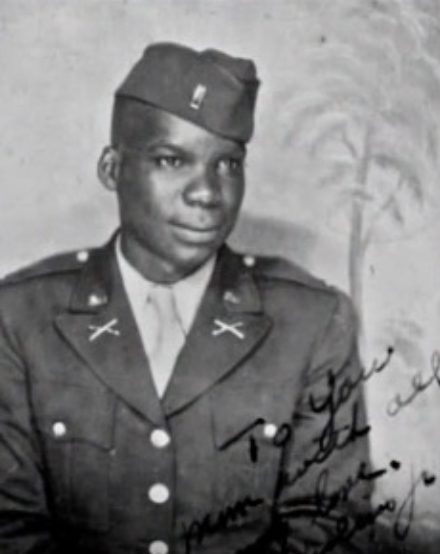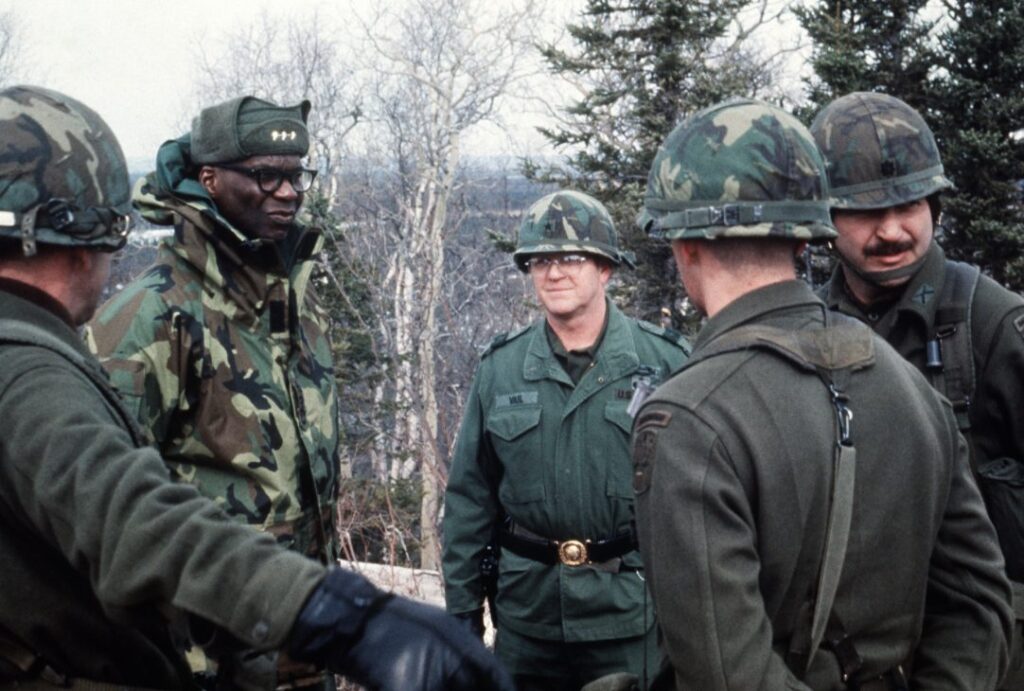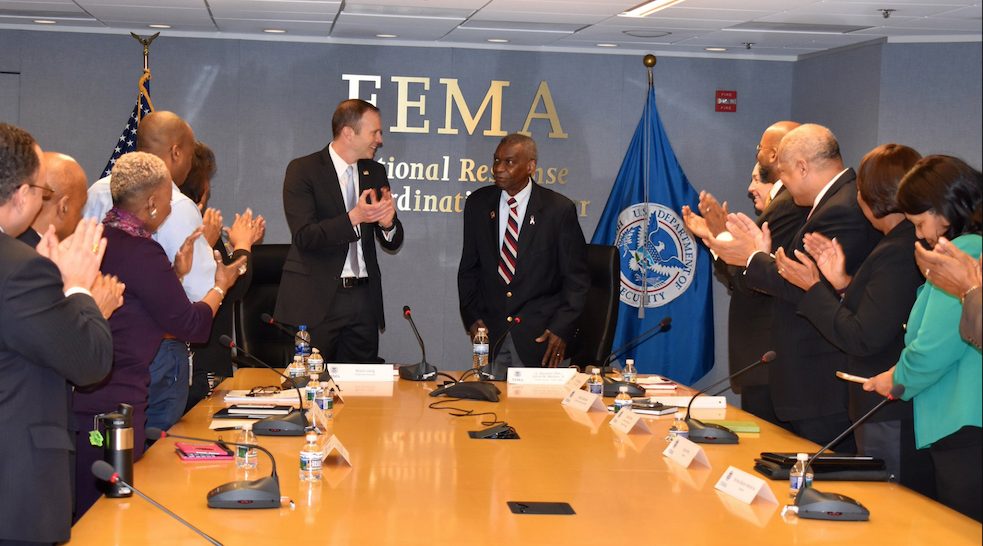In order to better appreciate the contributions of Black Americans, Team Rubicon is using Black History Month to learn and share the stories of Black trailblazers in our line of work: Emergency management and disaster response. Our first profile is of someone who, like our founders, answered the call of duty and followed the path from military service to a career in humanitarian relief. Today, we recognize Julius Becton Jr., a decorated veteran and the first Black director of FEMA.
Julius Becton Jr. Was born in Bryn Mawr Pennsylvania in 1926. He joined the Army Air Corps in 1944, graduated from the Infantry Officer Candidate School, and served in the Pacific at the end of WWII, but separated from the military in 1946 due to issues of racism. “It was a segregated Army and a segregated country. While I could take risks and spill my blood in defense of democracy, I had to sit in the back of the bus. And my enemy, the German and Italian prisoners of war, rode in the front” said Becton. “Not a pretty picture, but a true one, and one which many good people today either forget or simply forget to remember.”

Becton returned to the military after President Truman issued Executive Order 9981 in 1948 which called for the desegregation of the U.S. Armed Forces and abolished discrimination on the basis of race, color, religion, or national origin. He went on to serve in the Korean War and the Vietnam War and attained the rank of Lieutenant General in 1978. As Lieutenant General, he commanded the 1st Cavalry Division, the U.S. Army Operations Test and Evaluation Agency, and the VII Corps – the Army’s largest combat corps in Europe during the Cold War.

When Becton retired from the military in 1983, his career in public service was far from over. In 1985, President Reagan named Becton the third director of the Federal Emergency Management Agency (FEMA), a position he would hold until 1989. During Becton’s years as director, nearly 100 disasters were declared in the U.S., from hurricanes, tornadoes and typhoons to flooding, mudslides, and fires. He was the first director to stress the importance of preparing Americans for disasters and alerting them if there was a threat.
As director of FEMA, Becton’s legacy lies in his efforts to reform the organization. Prior to his arrival, scandal and mismanagement hampered FEMA in performing its mission. The agency had come under investigation for misuse of funds, leading to the resignation of his predecessor. Becton worked tirelessly during his term to restore integrity within FEMA and rebuild public trust. Afterwards, he would be lauded for his performance and go on to serve as Superintendent of the Washington D.C. public school system.

The life that Julius Becton Jr. has led is an example of persisting through adversity to create positive change at the highest levels of power. Despite his early experience of racism in the Army, Becton believed the military could be a powerful force for racial equality. “The military can be relied upon to fix what is broken. It always has.” he said, “And in fundamental issues of social fairness it has led the country in doing what’s right.”
As an organization with its roots in military service, Team Rubicon shares his conviction and strives to provide an opportunity for veterans to continue fixing what’s broken.



